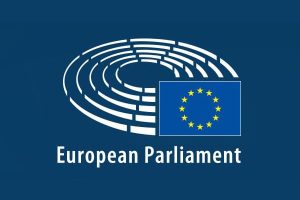Controversial EU Copyright Directive ‘Could Threaten Internet Freedom’
 BRUSSELS – In a vote held Wednesday, European Parliament voted 438 to 226 (with 39 abstentions) to adopt a “revised negotiating position” on the controversial EU Copyright Directive. The measure will now proceed to discussions between the EU Parliament and its member states in which they will “hammer out a final deal,” as the Parliament put it in a press release issued Wednesday.
BRUSSELS – In a vote held Wednesday, European Parliament voted 438 to 226 (with 39 abstentions) to adopt a “revised negotiating position” on the controversial EU Copyright Directive. The measure will now proceed to discussions between the EU Parliament and its member states in which they will “hammer out a final deal,” as the Parliament put it in a press release issued Wednesday.
According to its supporters, the new rules embodied in the Directive will “ensure fair pay for artists and journalists in today’s digital world.”
The Directive’s critics see things quite differently, of course. On the mild side of their concerns, Gus Rossi, the Global Policy Director at Public Knowledge, warned that if it is adopted in its most recently-published form, the Directive is “likely to limit the sharing of online information.”
Others have been less measured in their criticism, saying that the Directive represents nothing less than the EU giving up on the “open internet experiment” entirely.
Two articles of the Directive have received most of the focus from its critics: Article 11 and Article 13. Article 11 sports the explanatory subtitle ““Protection of press publications concerning digital uses,” while Article 13 is labeled “Use of protected content by information society service providers storing and giving access to large amounts of works and other subject-matter uploaded by their users.”
Depending on whose interpretation you credit, Article 11 is either a “link tax” or a modest licensing fee which will only burden “big platforms.”
In a brief Q&A included as part of a statement put out by the EU Parliament following Wednesday’s vote, German EPP member Axel Voss downplayed the prospective impact of Article 11 on internet users, and suggested that under current laws and regulations, online platforms have been enriching themselves at the expense of publishers.
“Nowadays, the big platforms use press content, make a lot of money with it, and the publishers do not get a share,” Voss said. “Article 11 gives press publishers an own right, so that they can claim remuneration if platforms use their content. What can still be used is the hyperlink and the private copy. They are not covered by article 11 and can be set by every platform, Wikipedia for example.”
Unsurprisingly, MEP Julia Reda, a member of the Pirate Party of Germany, disagrees with Voss’ synopsis of the scope and impact of Article 11 – and of the Directive, in general.
“Today’s decision is a severe blow to the free and open internet,” Reda wrote in a statement published Wednesday. “By endorsing new legal and technical limits on what we can post and share online, the European Parliament is putting corporate profits over freedom of speech and abandoning long-standing principles that made the internet what it is today.”
Attorney Larry Walters told YNOT that while he has not had the opportunity to evaluate the substance of the Directive, “based on media reporting and comments from EU politicians, this law could threaten Internet freedom.”
“The Directive apparently requires online service providers to take appropriate and proportionate measures to prevent sharing of user-generated content that infringes a rightsholder’s copyright,” Walters said. “This could cause tech giants to use automated content filtering systems that prevent users from sharing news stories, articles, and memes. Other potential concerns involve restrictions on sharing links to copyrighted materials. While there is some dispute over the scope and intent of the Directive, it has generated some controversy in the tech freedom community.”
Walters also noted it’s difficult to say what the Directive’s impact will be, because Wednesday’s vote doesn’t represent the end of debate or revision of the proposal.
“The passage of the Directive is not the end of the issue, since the law will now trigger discussions between the European Parliament, the European Commission, and the European Council,” Walters said. “Once that process concludes, each EU nation will need to decide how it will implement the new rules.”
Rossi’s comments on Wednesday’s vote suggest what he’s most concerned about is the possibility of the Directive reaching well beyond the boundaries of the EU.
“Web services large and small might decide to implement the directive globally, which would diminish American users’ capacity to share memes, political satire, or news articles online,” Rossi said. “Bad ideas travel fast across the Atlantic, and it’s only a matter of time before the American entertainment industry tries to enshrine these misguided reforms in U.S. law. The Copyright Directive threatens freedom of expression, creativity, and the ability of voters to access trustworthy information around the globe.”













